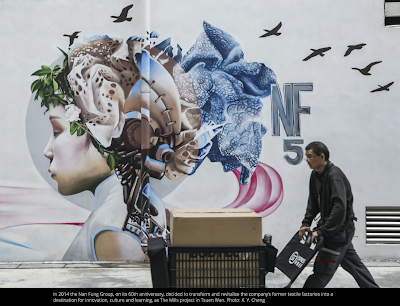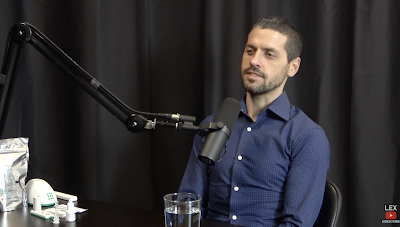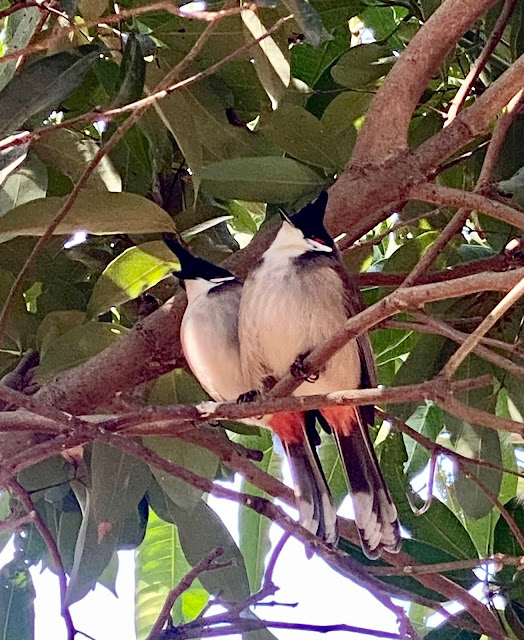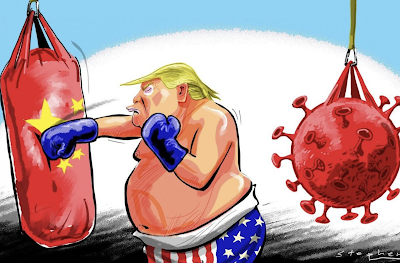 |
| “I’m wrong? Well you too are wrong!" |
What is tu quoque? It goes like this:
A: You’re a thief and a liar!
B: Oh yeah? Well, you are a thief and a liar too!
These days it’s better known as “whataboutery”. As in:
Australia criticises China for human rights abuses. Someone says “Oh yeah? Whatabout Australia? It abuses human rights too!”
At its best, this tactic calls out hypocrisy. And that’s fair enough criticism. We don’t need the pot calling the kettle black. [Wiki’s take on tu quoque is here and ThoughtCo's here].
Tu Quoque goes wrong in two ways:
1. The two "crimes” -- or shortcomings, or faults -- may be very different. Eg person A says “you’re a murderer” and person B responds “Oh yeah? Well you’re a pickpocket!” They’re both criminals so how dare one criticise the other??
This is the fault with Greg Barns’ article in today’s South China Morning Post “Australia is in no position to criticise China on human rights abuses”. The title says it all. Australia commits human rights abuses so has no right to raise China’s. But they’re different. Australia stopping illegal immigrants (“undocumented migrants”) from jumping the queue to enter Australia in front of legally-processed migrants and refugees is a rather different thing from jailing a million of your own citizens because they happen to hew to a different ideology -- in this case islam. I’m not a fan of the "Religion of Peace”, but China’s documented repressions are horrific.
2. The two "crimes” -- or shortcomings, or faults -- may be the same: but one does not excuse the other. I remember now, as I write this, where I first heard of tu quoque. It was when I read about critiques of the Koran and people responded “well, the Bible is violent too”. Which is true. But does not excuse the violence in the Koran. A better, a more logical, response would be to look at the violence in both of these foundational texts and see what can be done about reducing the violence; not responding to criticism by saying “well, your book is violent too!”.
I could go "meta-whataboutist" here, in relation to Barns’ attack on Australia. I could say, well, all countries have some human rights abuses. We’re all guilty! With the inevitable conclusion that no-one can accuse anyone. Then again, that’s why we have measures and indexes. To rank the countries in the world according to various measures, in this case one on Human Rights and freedoms.
There’s a Human Freedom Index, which measures a dozen areas including: Rule of law; security and safety; religion, press, assembly, movement, etc. Australia is number 5 out of 162 countries. China is number 126.
Or there is a List of Freedom Indices at Wikipedia. This is the summary for Australia and China:
 |
From here. Click to enlarge.
Finally, what about immigration? Australia is consistently at the top of the league table of those countries that people seek to emigrate to. In 2019 it was number 2 in the world after Canada. Why would people clamour to come to Australia if it were as horrid a place as Barns suggests? How many are clamouring to enter China? (Hint: it’s not even on the list). |
None of this is to downplay Australia’s sorry record in our treatment of indigenous Australians, in our treatment of asylum seekers, in our handling of the climate crisis. All ripe for critique and improvement. But here’s the thing: you can do that in Australia -- you can freely and openly discuss, dispute, debate these issues. You can call for the government to change. Indeed, the critique is done pretty much 24/7, to the extent it’s almost an obsession; whereas in China, dare to criticise the handling of Uygurs in Xinjiang. Dare to criticise the handling of the Nobel Laureate the late Liu Xiaobo. I mean, sure, if you want to research the Chinese penal system.
In Australia, Barns’ attack notwithstanding, we have standing to raise any issues we wish. Critiques of other nations, as much as critiques of ourselves, ought to be part of healthy international discourse.
Barns’ article is not it. It is, rather, tendentious nonsense. I’m inclined to say it’s virtue signalling, but that would be a cheap shot. Yet it’s doing well online, with the comments running much in his favour. How many Wumaos? I don’t know, but many, I’ll bet.
Barns' article is catnip to CCP-lovers and Aussie-haters. And can only serve to justify Beijing’s bullying. Meantime, my friends in the wealth industry living in China tell me that they’ve had a big spike in wealthy Chinese moving money to Australia. Go figure that, if Australia has “lost its lustre”, when it is a “pariah” as Barns claims.
RELATED: Would you rather be Meng in Canada or a Canadian held in China?
AND: Australia stands up to bullying
























